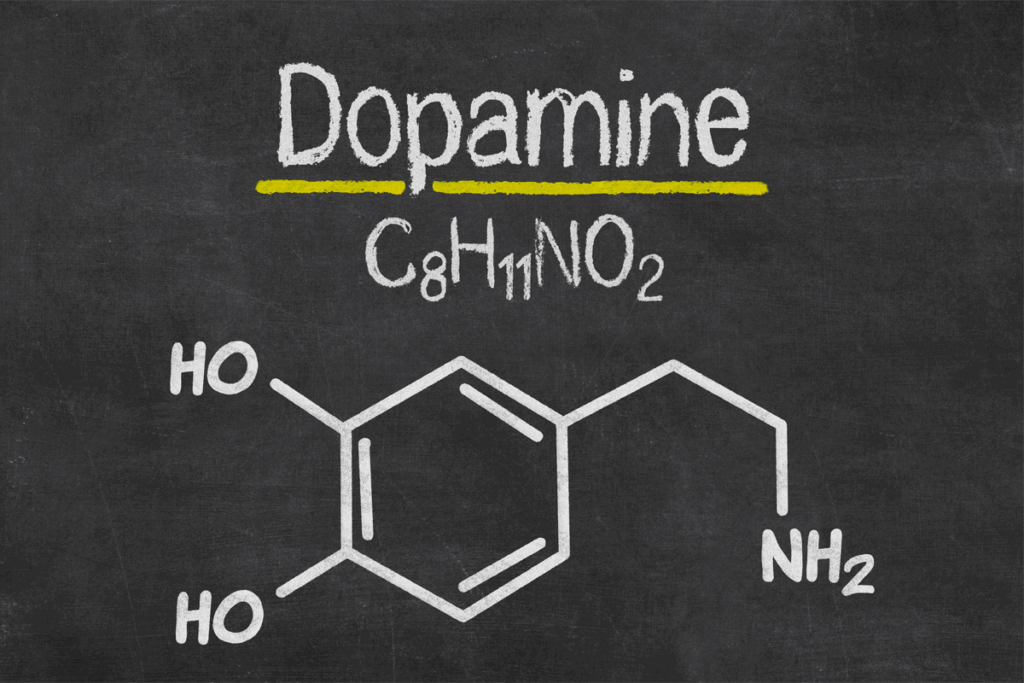Dopamine
Definition
Dopamine is a neurotransmitter – a chemical messenger in the brain – that is involved in motivation, pleasure, attention, and reward. Within BDSM, dopamine plays a major role in creating tension, excitement, and the desire to repeat certain experiences.

Explanation of dopamine
Dopamine is one of the most important substances that control our behavior. Whenever we do something that is perceived as pleasant – such as touch, excitement, surrender, or pain that we can tolerate – dopamine is released. This gives us a feeling of satisfaction, focus, and energy. Dopamine is undeniably present in a BDSM experience: the excitement of waiting, the gaze of the Dominant, the crack of a whip, or the silence before a command – all these moments trigger a physical reaction in the brain.
Contrary to popular belief, dopamine is not simply the “happiness hormone.” It is more like the expectation hormone: it makes us crave, desire, and anticipate what is to come. That is precisely what makes BDSM so intense. The brain learns that tension, pain, or power play are followed by a rewarding feeling, which makes the anticipation of the next experience even more powerful.
Adrenaline and endorphins
Within a session, dopamine often works together with adrenaline and endorphins. Adrenaline prepares the body for action – increased heart rate, alertness – while dopamine keeps attention sharp and predicts reward. When the tension then turns into release or surrender, endorphins take over and calm or euphoria ensues. This chemical interaction explains why BDSM can be so compelling, not only physically but also mentally.
However, the dopamine system is sensitive to repetition. The brain remembers what brings pleasure and wants to repeat it. This can be positive – as in a healthy D/s relationship in which tension is consciously built up and released – but it can also be a pitfall if someone is only looking for the next peak. Then dopamine changes from a guide to a motivator, and the game becomes an escape (dopamine addiction) instead of an experience.
Safety & points of attention
Recognize the difference between desire (consciously chosen) and urge (automatically responding to stimulus hunger).
Plan recovery time after intensive sessions so that the brain can regain its chemical balance.
Vary the types of games; not every session needs to be focused on excitement or climax.
Make healthy lifestyle choices – sleep, nutrition, and relaxation strongly influence the dopamine system.
Related concepts dopamine
Adrenaline
Dopamine addiction
Endorphins
Hormones
Oxytocin
More information

